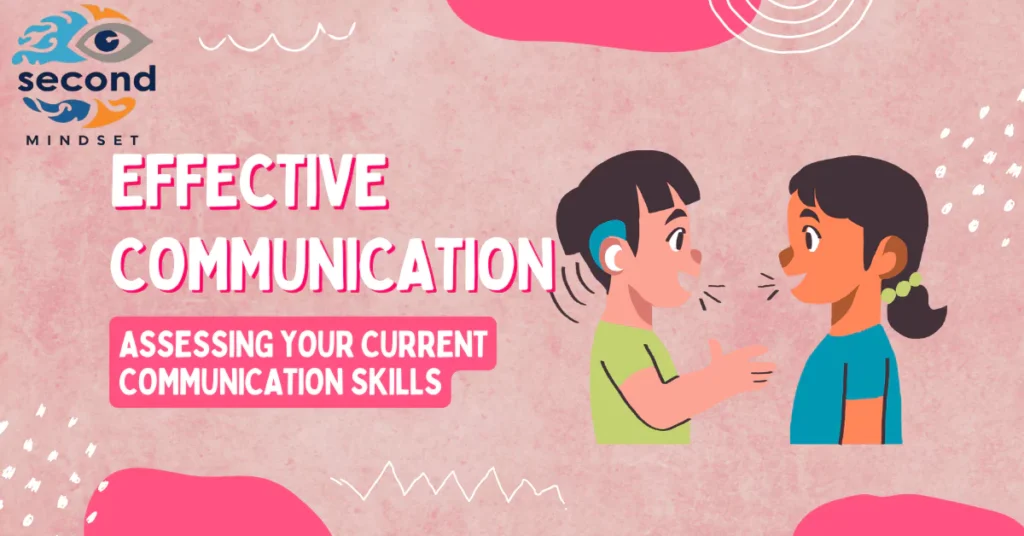Understanding the Importance of Communication Skills
In today’s fast-paced and interconnected world, the significance of effective communication skills cannot be overstated. The ability to convey thoughts clearly and persuasively in both personal and professional settings plays a pivotal role in fostering successful interactions. Communication is multifaceted, encapsulating verbal, non-verbal, and written forms, each equally essential in conveying meanings and emotions.
Verbal communication, which includes speaking and listening, is fundamental in establishing rapport and facilitating discussions. Whether in a one-on-one meeting or a large presentation, articulating ideas with clarity can influence opinions, drive decision-making, and inspire action among colleagues. Active listening, a crucial component of verbal communication, ensures that messages are not only heard but understood, supporting richer, more productive conversations.
Non-verbal communication, encompassing body language, eye contact, and facial expressions, often speaks louder than words. These subtle signals can convey confidence, openness, and engagement, thereby enhancing the effectiveness of verbal interactions. Recognizing and effectively utilizing non-verbal cues can significantly improve teamwork, as colleagues often interpret these signals instinctively, allowing for a deeper connection and understanding.
Written communication, encompassing emails, reports, and presentations, is another vital skill. In an increasingly digital workspace, the ability to draft clear and concise documents contributes to professionalism and credibility. Good writing conveys not just information but also the writer’s intent and personality, thus influencing how messages are received.
Strong communication skills ultimately lead to better relationships and collaboration within teams. When colleagues share thoughts and ideas transparently, it fosters an atmosphere of trust and mutual respect, thereby enhancing overall productivity. Consequently, those looking to progress in their careers must recognize that honing their communication skills is not just an asset but a necessity for achieving sustained success.
Assessing Your Current Communication Skills

Evaluating your existing communication skills is a vital first step towards enhancing your overall effectiveness in the workplace. Self-assessment provides an opportunity to reflect on your strengths and pinpoint areas where improvement is needed. Begin by analyzing your current abilities through honest introspection. Ask yourself questions about your listening skills, clarity of expression, and emotional intelligence. Are you able to engage in active listening, allowing others to feel heard and understood? Consider recording your responses in a dedicated communication journal, which can serve as a valuable tool for reflection and progress tracking.
Seeking feedback from peers and mentors can also provide valuable insight into your communication style. Constructive criticism can reveal blind spots that you may not be aware of. Approach trusted colleagues, supervisors, or mentors, and request their input on specific aspects of your communication. Be open to receiving both positive and negative feedback; this information can guide your efforts in developing essential skills. When gathering feedback, focus on areas such as your ability to express ideas clearly and effectively, as well as your capacity to empathize with others during conversations.
Importantly, pay attention to your body language, tone, and listening habits. Non-verbal communication plays a crucial role in how your message is received and can either enhance or hinder your effectiveness. As you assess your current skills, consider engaging in specific activities or workshops designed to enhance communication. These opportunities can provide structured environments to practice the skills you aim to improve. Remember, developing strong communication skills is an ongoing process that requires commitment and dedication. By regularly assessing your abilities and seeking input from others, you will be better equipped to navigate the complexities of interpersonal communication and contribute positively to your professional environment.
Strategies to Enhance Your Communication Skills
1. The Importance of Improving Communication Skills
Improving communication skills is essential for professional growth and interpersonal effectiveness.
2. The Art of Active Listening
One of the most powerful techniques for enhancing communication is active listening. This practice requires focusing entirely on the speaker, acknowledging their message through nodding or verbal affirmations, and providing appropriate feedback. By doing so, you foster an environment of trust and respect, allowing for more meaningful exchanges of information.
3. The Impact of Effective Questioning
Another crucial strategy involves effective questioning. Employing open-ended questions encourages dialogue and deeper insight, prompting the other party to express their thoughts fully. For example, asking “What challenges are you facing with this project?” rather than “Are you facing challenges?” invites a more comprehensive response, enhancing the clarity of communication.
4. Mastering Non-Verbal Cues
Additionally, managing non-verbal cues—such as body language, facial expressions, and eye contact—is vital in conveying your messages accurately. Being aware of these signals and aligning them with your verbal communication can significantly impact how your message is received. For instance, maintaining eye contact can show engagement, while crossed arms may send a signal of defensiveness.
5. Tailoring Your Communication Style
Customizing your communication style to suit different audiences can further enhance understanding. Recognizing whether your audience prefers detailed information or concise summaries allows for adjustments in your approach, making interactions more effective and enjoyable. Tailoring your message increases the likelihood of achieving your communication objectives.
6. Practical Strategies for Implementation
To put these strategies into practice, consider enrolling in workshops, participating in communication courses, or reading books focused on the art of effective communication. Role-playing different scenarios with colleagues or friends can also provide practical experience. By consistently applying these techniques, individuals can significantly enhance their communication capabilities across various contexts.
7. The Power of First Impressions in Communication
First impressions are crucial in communication, as they set the tone for future interactions. When you engage with others, your body language, tone, and initial words can create a lasting impact. A confident and positive first impression not only captures attention but also fosters trust and rapport. Recognizing the importance of how you present yourself in the initial moments can significantly enhance your overall communication skills and contribute to career success.
Applying Communication Skills in the Workplace

The ability to communicate effectively in the workplace is a crucial skill that contributes to overall career success. One of the primary applications of improved communication skills lies in facilitating teamwork. In collaborative environments, clear and concise communication ensures that all team members are on the same page regarding objectives, tasks, and deadlines. For instance, adopting active listening techniques can enhance understanding among colleagues, reducing the likelihood of misunderstandings and ensuring that everyone’s contributions are valued.
Additionally, proficient communication skills are essential during presentations. Whether delivering a project update or pitching a new idea, the ability to articulate thoughts clearly can significantly influence audience engagement and decision-making. Utilizing storytelling techniques, visual aids, and engaging language can transform a mundane presentation into a compelling narrative that captures the attention of stakeholders and encourages positive responses.
Conflict resolution is another area where communication skills play a pivotal role. Disagreements are inevitable in any professional setting, but the way such conflicts are addressed can lead to productive outcomes or escalate tensions. By employing effective communication strategies—such as maintaining a calm demeanor, practicing empathy, and focusing on problem-solving rather than personal attacks—individuals can navigate conflicts constructively, ultimately fostering a healthier workplace environment.
Moreover, adaptability in communication styles is essential, especially in diverse workplace cultures. Recognizing and respecting the various communication preferences of colleagues from different backgrounds allows for more effective interactions. Tailoring one’s communication approach—whether straightforward, collaborative, or assertive—can maximize clarity and enhance relationships among team members.
Incorporating these refined communication skills can lead to tangible benefits in professional settings, such as enhanced job performance, opportunities for career advancement, and improved workplace morale. As individuals become adept communicators, they not only contribute to their own success but also uplift the collective efficacy of their teams.


Pingback: Mastering Child Aggression: A Guide for Parents of 4-Year-Olds
Pingback: Crafting a Memorable First Impression: Key Tips
Pingback: Building Friendship: How to Make a Real Girlfriend